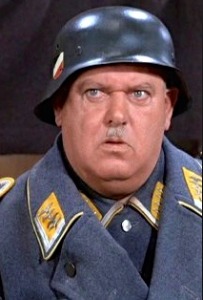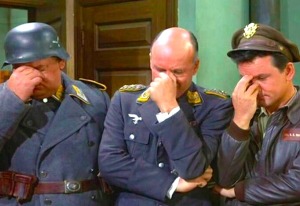“I see nothing.”
By now you surely know the broad outlines of the story. No need to recount all of the sordid details here.
Over a span of eighteen years, stretching from coaching legend Dean Smith to Hall of Famer Roy Williams, 3,100 students – nearly half of them UNC athletes – enrolled in a series of sham Afro-American Studies courses guaranteeing them A’s and B’s without having to show up for class, turn in papers, or take tests. Most of the jocks were football and basketball players, including members of three national championship teams (1993, 2005, 2009).
 At the center of the “shadow curriculum” was an assortment of “paper classes” or independent study courses coordinated by Deborah Crowder, a secretary in the AFAM program. These courses proceeded without the involvement or supervision of UNC faculty and required only a single research paper graded, of course, by Crowder, resulting nearly always in a high grade or more disturbing, the specific grade required to keep the particular athlete eligible. If the athlete needed a “D-plus” to generate a GPA high enough to guarantee eligibility, then he received a “D-plus.” If he needed “C-minus,” he got a “C-minus.”
At the center of the “shadow curriculum” was an assortment of “paper classes” or independent study courses coordinated by Deborah Crowder, a secretary in the AFAM program. These courses proceeded without the involvement or supervision of UNC faculty and required only a single research paper graded, of course, by Crowder, resulting nearly always in a high grade or more disturbing, the specific grade required to keep the particular athlete eligible. If the athlete needed a “D-plus” to generate a GPA high enough to guarantee eligibility, then he received a “D-plus.” If he needed “C-minus,” he got a “C-minus.”
According to Kenneth Wainstein, a former US Department of Justice official hired by the University to investigate the scandal, “By the mid-2000s, these classes had become a primary – if not the primary way – that struggling athletes kept themselves from having eligibility problems.” For example, ten of the fifteen players on the 2004-05 North Carolina men’s basketball team majored in AFAM. How many of them would have remained eligible without the sham courses? Wainstein’s probe didn’t pursue the question but the NCAA is now investigating former players’ transcripts to see if the phony classes enhanced their eligibility.
And Roy Williams’ culpability?
I don’t know Coach Williams. By all accounts he’s a decent, hardworking guy who genuinely cares about the kids he recruits and coaches. Good guy, good citizen, loved in the community, loyal to his school, scandal-free during his twenty-six years in the big show… and I like his style of play – running the floor and giving his talented kids room to play. Yet I find his claims of innocent naiveté preposterous.
Consider the following:
• Kids talk
Before each Monday drew to a close during the nearly twenty years I taught and coached high school boys, I inevitably heard the same question: “Coach, how did you and other teachers find out about that party last Friday night? (Or the brawl at the hockey game or the car wreck or whatever nutty thing happened over the weekend.) My answer was always the same: “Because you guys can’t keep your mouths shut. Most of the faculty knew something had happened before the end of first period.” The simple fact of the matter is that people – particularly young people – talk. 3,100 students, half of them jocks, take fake courses over a period of eighteen years and the college’s adult community didn’t know it was taking place? Ridiculous.
• It’s a small team
College basketball programs are very intimate. Currently the UNC roster lists sixteen players and fourteen coaches, managers, trainers, videographers. Thirty people who spend a good part of each day with each other. I can’t imagine a situation where the coaches don’t have a very good idea what courses kids are taking, how they’re progressing, and whether their eligibility is safe or in jeopardy. Everybody in the locker room knows what is going on with everybody else. Who’s lonely, who’s angry, who got jilted, who’s jealous, who’s struggling, who’s on fire… who’s taking classes that don’t actually exist.
• He brought his own guy from Kansas
When Williams moved from Kansas to North Carolina in 2003, he brought Wayne Walden with him. Walden served as the academic counselor for Williams’ Kansas team. Walden told investigators he worked with Deborah Crowder to get players into the fake classes she organized. He admitted knowing that students enrolled in these classes had no contact with faculty and said he thought Crowder was probably doing some of the grading. Yet Williams told investigators he never learned from Walden or anyone else there was a question about faculty involvement in the classes or that Crowder was doing the grading. Perhaps Williams really was out of the loop but Gerald Gurney, a former athletic department compliance director and current president of the Drake Group (a watchdog of academic integrity that has researched every NCAA academic fraud case since the Division I infractions committee began in 1953) finds it hard to believe. “When you bring your own academic counselor from Kansas and that counselor continued the sham for eligibility purposes, it is not believable that Roy Williams didn’t know about it.”
• He reversed the trend of “clustering” of majors
Within two years of his arrival at UNC Williams expressed discomfort with the “clustering” or high number of basketball players majoring in Afro-American Studies. To his credit he began shifting his players to other degree programs featuring traditional, structured lecture courses. From the get-go, Williams knew something was not right .
• The mind-boggling, unprecedented scale and scope of the scandal
“I can assure you the depth and breadth and sheer numbers of affected athletes is in fact the largest and the most egregious case of academic fraud by far in NCAA history,” says Gerald Gurney. It’s not only the number of students involved that sets this scandal apart from previous incidents of academic fraud, but as columnist Kami Mattioli notes, the cheating was “cyclical, continuous and occurred over an 18-year span.”
Taken at a whole, it’s simply not reasonable to assume that Williams, his staff, and members of the athletic department did not know about the fraud in whole or in part. Gary Parrish over at CBS Sports comes closest to my take:
“…Williams eventually acknowledged to investigators that, yes, he had early suspicions about his players’ heavy use of classes in the Afro-American Studies Department, which was littered with paper courses. And that proves, at least in my mind, that what Williams did here is essentially the same thing so many other high-profile coaches have done in similarly sketchy situations for decades and decades, i.e., table suspicions of improper behavior, at least temporarily, in the spirit of wins and protecting the brand.
Roy Williams wasn’t initially too interested in taking the obvious steps to find out if the majority of the players on his 2005 national title team (and others throughout his tenure) were being guided into fraudulent classes to ensure eligibility… because, quite simply, it was better if he didn’t know.”
The UNC scandal illustrates what ethicists call “vincible ignorance” – a situation where a reasonable person with reasonable access to information should have known what was going on and therefore carries some level of responsibility for the outcome. Interestingly, assessing penalties in the old NCAA enforcement structure relied on whether the head coach had a “presumption of knowledge” of the violations. I.e., vincible ignorance. Under the new structure, though, in place since 2013, the bylaws are even more stringent, holding the head coach responsible and subject to discipline for the behavior of other staff members.
Where is this headed?
Will Roy Williams escape with his reputation intact? Will the NCAA vacate his 2005 championship season? No one really knows. Some believe that the Sergeant Schultz excuse – the “I see nothing” refrain – is not likely to wash. In their view the NCAA is so tarnished in terms of its own credibility that it must come down hard.
But cynics like Parrish believe UNC’s cache and basketball tradition may be too important to the NCAA’s profit line. “Coaches have forever talked about molding young people into men, preparing them for life after basketball, and blah, blah, blah. But the truth is that the majority understand they are paid millions of dollars to win games, and so they do what they have to do to win games… The incentive is national championships and stacks of money.” In the end, college basketball will go the same way as college football, best summarized by Ohio State’s QB Cardale Jones’ infamous tweet two years ago:
“Why should we have to go to class if we came here to play FOOTBALL, we ain’t come to play SCHOOL, classes are pointless.”
Jones, of course, will start in next week’s first-ever national championship semi-final game against Alabama.


Prolific and entertaining writer. Now that you are not writing about the Swedish relationships, you can focus on B-Ball. Submit to Sports Illustrated.
Thanks… the writing keeps me out of trouble.
Well said, Coach. Could not agree more. Love the comparison to Sgt Shultz!
Thanks for commenting.
Regarding your question of where this could go next, I have heard from more than one legal mind that the likelihood is high of a monumental Class Action lawsuit (representing the “student athletes”, importantly those under scholarship), against UNC … And the State of North Carolina. The premise is : these young men and women signed agreements with UNC that exchanged their athletic talents and participation in practices, games, and training sessions for a quality education. UNC, with this “scam”, denied them a quality education…and, most importantly, the financial rewards garnered in the job market that said “quality education” would have made possible. By scheming to fake the education, UNC is guilty. Anyone care to comment on that suggestion as to “where this goes next”? If the suit happens, look out NCAA—your charter could also hold you liable.
The hypocrisy of the NCAA is breathtaking. This case and the various lawsuits decided (e.g. The O’Bannon suit) or still in process may eventually doom the organization.
Terrific Seebs. I enjoyed and agree with every word! Keep it up.
Thanks for commenting.